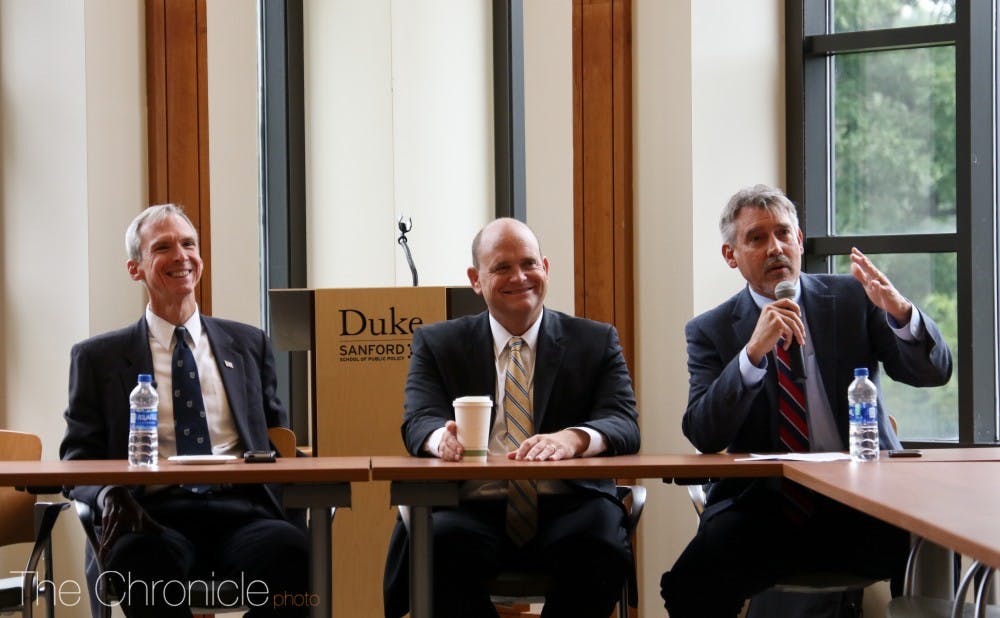A Republican and Democrat walk into Duke. They discuss the importance of building bipartisan trust and pledge to prioritize issues over party affiliation.
In the event sponsored by Duke's Center for Political Leadership, Innovation and Service, Rep. Dan Lipinski (D-Ill.) and Rep. Tom Reed (R-N.Y.) came to Duke to discuss bipartisanship Monday. Lipinski and Reed are members of the Problem Solvers Caucus, a bipartisan group of legislators who hope to cut through gridlock and make substantive change that benefits the American people.
“We come at these issues as proud Republicans and as proud Democrats, but we really do sit down as a group of 48 members of the Problem Solvers Caucus and we digest the issues,” Reed said.
They added that for the Problem Solvers Caucus, issues matter more than party affiliation.
“Most American people still want to see problems solved," said Lipinski, Graduate School '98. "Unfortunately, there are more people who are being torn into their tribes saying it doesn’t really matter what the solutions are, I am going to support whoever is out there screaming the loudest.”
The Problem Solvers Caucus has been successful in building bipartisan support through their emphasis on cultivating trust and relationships between members. The 48 members of the caucus pledge to not campaign for another member’s opponent in an election and in some cases even support another member’s campaign.
The caucus prides itself serving as a trial ground for building bipartisan support on issues where is appears the parties will never agree, the representatives said.
Jared Kushner, senior adviser to President Donald Trump, and news commentator Van Jones—distant on the political spectrum—have met with the caucus to discuss prison reform. This demonstration of politically divergent individuals coming together showcases the success of a forum in which ideas are valued and political posturing is left at the door, Lipinksi and Reed said.
In the middle of the conversation between the representatives and moderator Fritz Mayer, professor in the Sanford School of Public Policy, an elderly woman in a big black hat and sunglasses interrupted to encourage calling one’s representative and express her ire.
Kristina Pasqualone, a volunteer advocate for the disease dystonia who is recovering from surgery at Duke hospital, said she was frustrated with paid protesters and fake news.
“Make friends with them and you’ll be engaged with them, and they will hear what you’re saying,” Pasqualone said.
Rebuilding trust that has been lost is a daunting task, but the two caucus members said they remain hopeful. Lipinski and Reed have plans to rebuild the trust across parties that has eroded since they arrived in Washington, D.C.
They mentioned that they hoped to restore power to individual representatives rather than follow a top-down party leadership model, reinforce procedures that require consensus instead of single party rule and break the economic model that benefits from polarization.
“I think the American people agree with us that it’s time to get to work and it's time to set aside our differences where we can and find those areas of common ground," Reed said. "That's what we're all about.”
Get The Chronicle straight to your inbox
Signup for our weekly newsletter. Cancel at any time.

